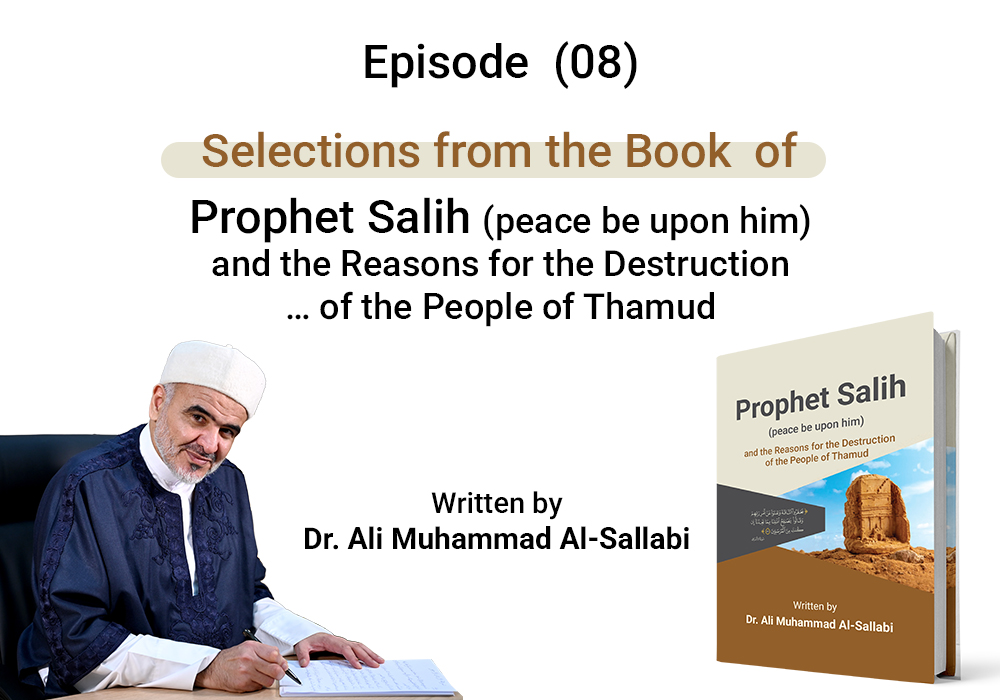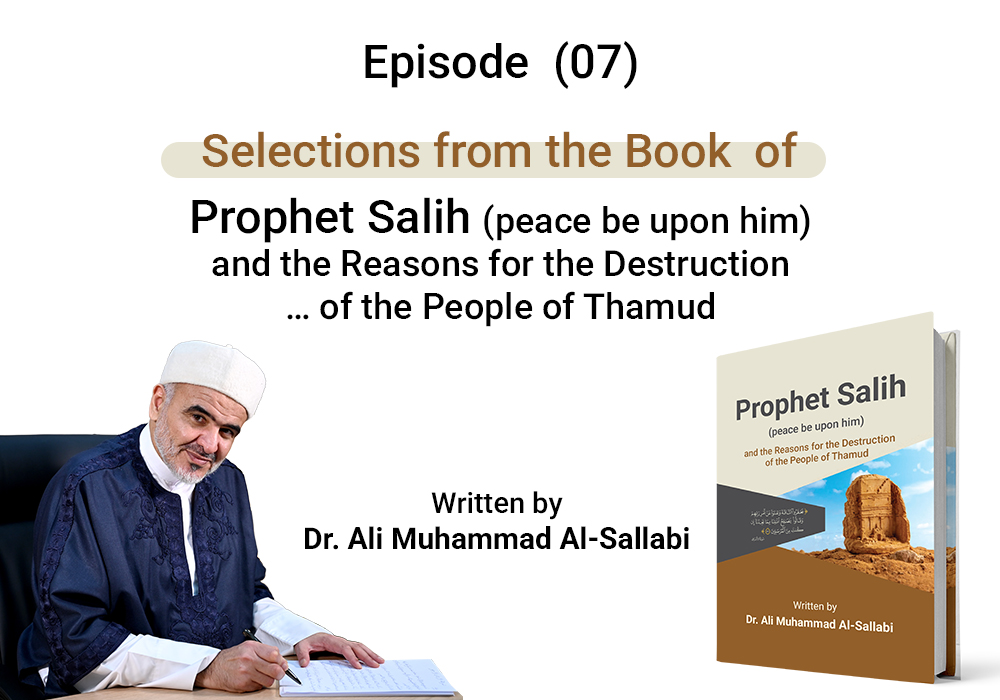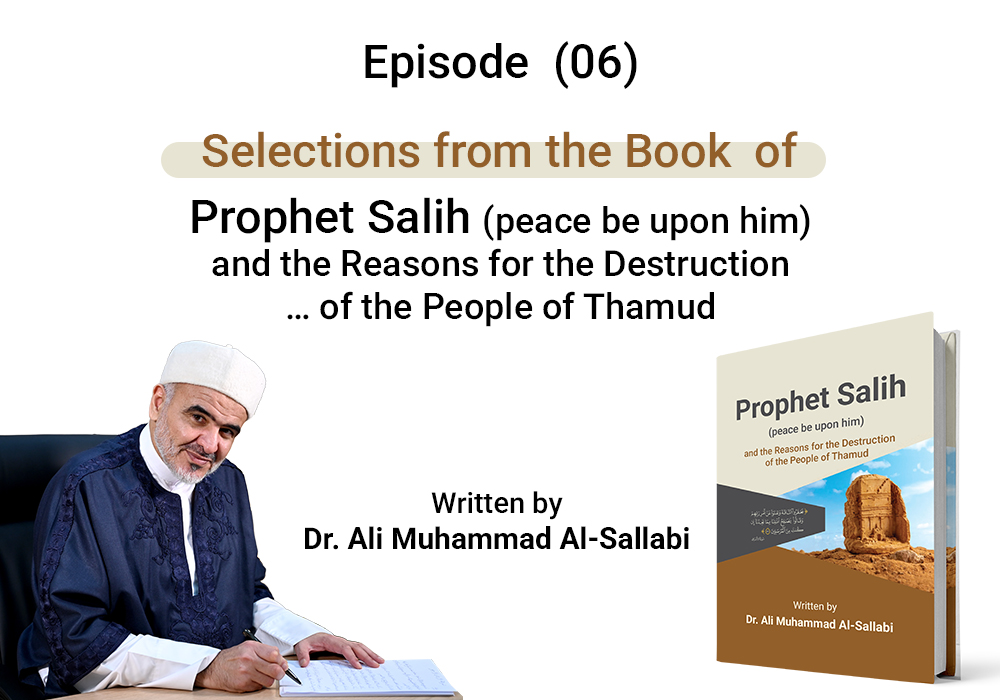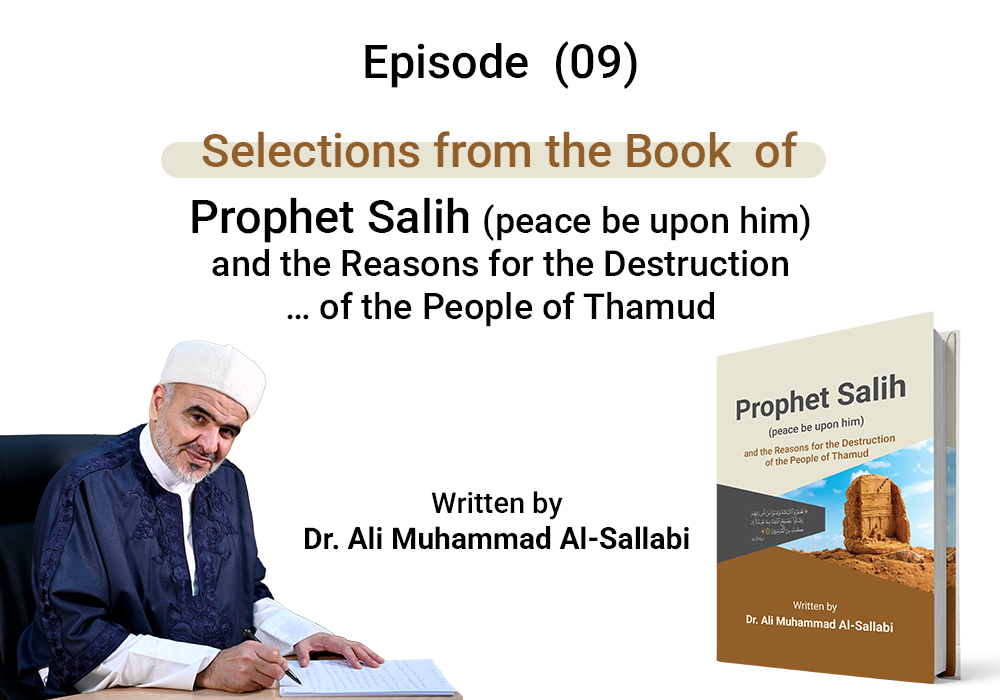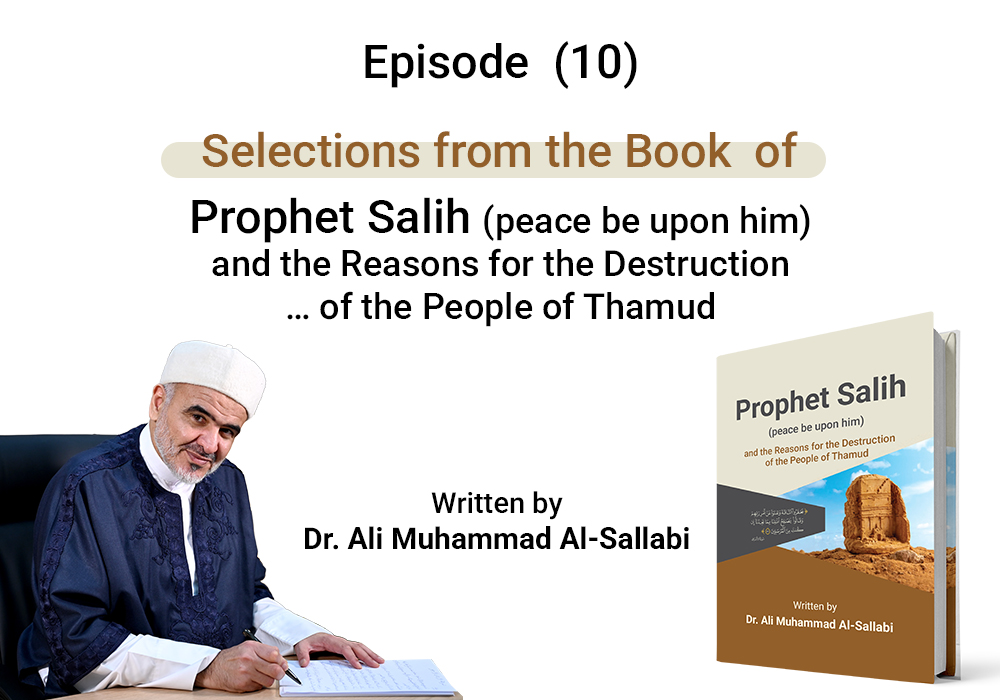Conditions of a Miracle
Selections from the Book Prophet Salih (peace be upon him) and the Reasons for the Destruction of the People of Thamud …
Written by Dr. Ali Muhammad al-Sallabi...
Episode (08)
- The miracle must be extraordinary, meaning it does not adhere to the cosmic laws, material causes, or human measurements, and it is outside of what people are accustomed to or familiar with in their lives.
This miracle is beyond human reasoning, in the sense that it does not contradict human logical thinking, provided that this mind is aware, open, and expansive, not small, weak, and closed.
- The miracle must be an act of Allah. Allah is the one who causes the miracle to occur through the prophet, and He chooses and presents it to the prophet. The prophet has no choice or ability to perform it; it is not of his doing or choosing. His role is to present it to the people and show it through his hand, confirming to them that it is not from him, but from Allah.
- The miracle must appear through the prophet (peace be upon him), because the prophet presents himself to his people as a prophet, and Allah provides him with evidence of his prophethood through the miracle that occurs at his hands. The term "miracle" should only be used for a divine sign that Allah causes to occur through the prophet's hands.
If Allah grants one of His servants or righteous allies a supernatural occurrence, it is called a "karama", not a miracle. The miracle is for the prophet, and the karama is for the righteous ally.
The wondrous acts of magic, sorcery, and devilish tricks presented by some magicians and soldiers of Satan are not included in this category, because they are not acts of Allah, nor are they confirmations from Allah for the person performing them, nor do they serve as proof of His approval.
- The miracle must be free from opposition, meaning that the enemies of the prophet are incapable of opposing it, refuting it, or bringing forth something like it. This miracle is a sign from Allah for him, and if his enemies were able to oppose it, it would lose its meaning and would not serve as proof of his truthfulness.
- The miracle must occur after the claim to prophethood. After Allah sends the prophet and he presents himself to his people as a prophet from Allah, Allah grants him the miracle as a confirmation of his truth. If the supernatural event occurs before the claim to prophethood, it is not called a miracle, but rather an "irhas" (a prelude or foreshadowing), like the words of Jesus (peace be upon him) while he was still in the cradle, or like the greeting of the stone in Mecca to the Prophet (peace and blessings be upon him) before his prophethood.
Some scholars consider the challenge a condition for the miracle, and thus they define it as: a supernatural event coupled with a challenge, free from opposition.
The meaning of the challenge is that the prophet challenges his disbelieving people, asking them to oppose or refute the miracle or to bring something similar, and they will be unable to do so because it is from Allah.
Dr. Salah Abdul-Fattah Al-Khalidi (may Allah have mercy on him) said: "We do not agree with these scholars on considering the challenge a condition for the miracle, or on considering that all miracles are accompanied by a challenge, and we do not agree that this challenge should be a restriction in the definition because not all miracles involve a challenge."
Miracles, in relation to the challenge, are of two types:
First: Miracles accompanied by a challenge, which are miracles presented by the prophet to the disbelievers who deny him, as a proof of his prophethood. He asks them to refute or oppose it or to bring something like it, challenging them that they will not be able to do so. Examples of miracles accompanied by a challenge include:
- The she-camel of Prophet Salih (peace be upon him).
- The staff of Prophet Moses (peace be upon him).
- The resurrection of the dead by Prophet Jesus (peace be upon him).
- The revelation of the Quran to the Prophet Muhammad (peace and blessings be upon him).
Second: Miracles with no challenge, which are miracles directed by the prophet to his followers who believe in him. Since his followers believe in him, why should he challenge them?
Examples of such miracles include:
- The twelve springs that Allah made flow for the Children of Israel from the stone after Prophet Moses (peace be upon him) struck it with his staff.
- The table spread with food that Allah sent down for the disciples after the prayer of Prophet Jesus (peace be upon him).
- The glorification of pebbles and the multiplication of food.
- The flowing of water from the hands of the Prophet Muhammad (peace and blessings be upon him) in front of his companions.
From this, we know that the challenge is not a condition for the miracle.
- Ali Muhammad al-Sallabi, Prophet Salih (peace be upon him) and the Reasons for the Destruction of the People of Thamud, pp. 68-72.
- The rhetorical miracle of the Quran and evidence of its divine source, Salah Abdel Fattah Al-Khalidi, Dar Ammar, Jordan, 2016, p. 22.
For further information and review of the sources for the article, see:
The Book of Prophet Salih (peace be upon him) and the Reasons for the Destruction of the People of Thamud on the official website of Sheikh Dr. Ali Muhammad al-Sallabi:


